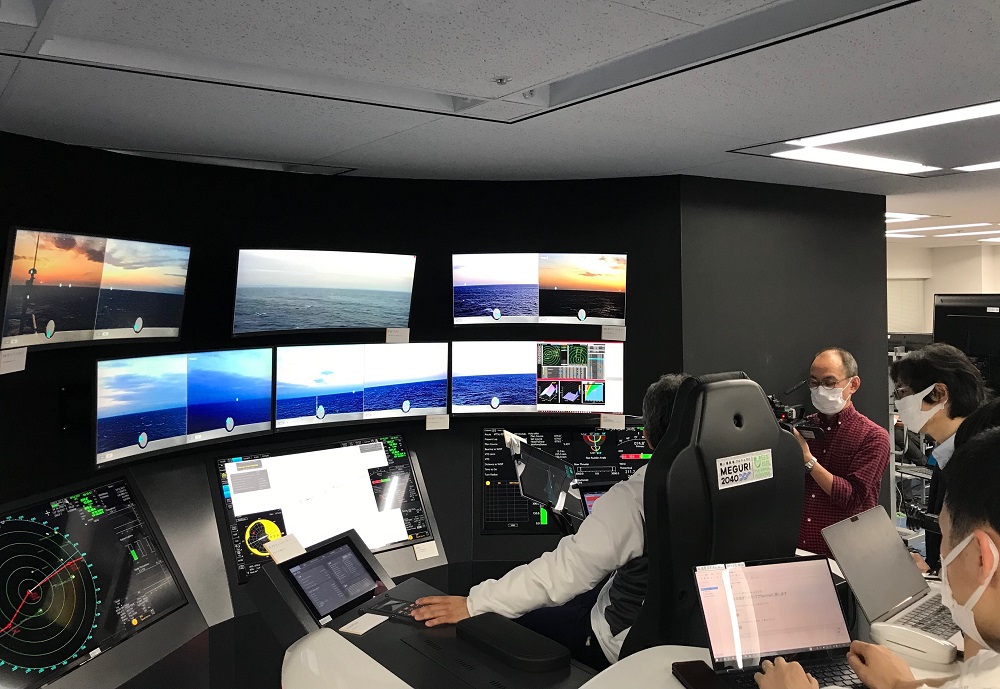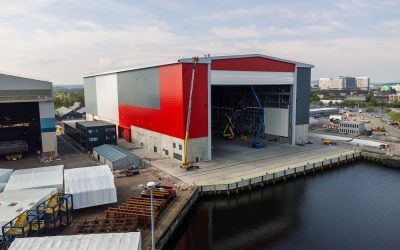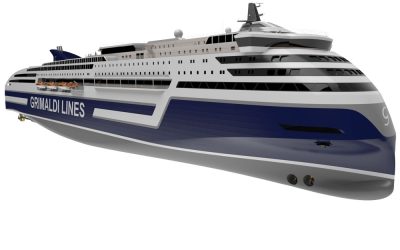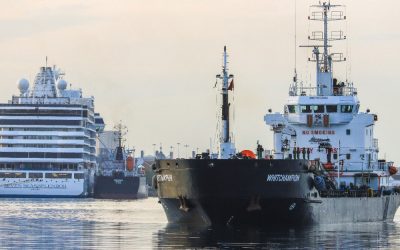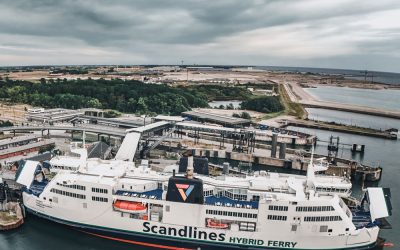The usage of artificial intelligence in the shipping industry has been steadily growing in recent years. The technology has a myriad of uses, from monitoring carbon emissions and ship systems to navigation and threat detection. The progress in the field of AI in shipping is often pioneered by technology startups with dedicated teams of researchers pushing the boundaries of the area.
One such company is Orca AI, which since its foundation in 2018 has been working to produce a variety of AI-driven products for the maritime industry. In an exclusive interview with The Naval Architect from the company’s office in Tel Aviv, founder and chief technology officer Dor Raviv explains how the company began and discusses the firm’s new cutting-edge products.
Raviv says the company’s origin story can be traced back to the Israeli Navy where he and his co-founder, Yarden Gross, served as navigation instructors 15 years ago. Raviv, a former commander for 160 sailors, specialised in teaching navigation and operations. His journey includes leading the development of the first autonomous surface ships in the Israeli Navy, marking the foundation for his venture into the scope of maritime automation.
At present the Orca AI team comprises 60 employees and its products are deployed on around 270 commercial ships across the globe and 500 more in booking.
The company’s current focus revolves around two central linchpins, each designed to address distinct aspects of autonomy in shipping. One of these is an onboard digital automated watchkeeper, while the other is a reliance on a data-driven fleet management dashboard for the office. Raviv’s vision is clear – to establish a foundation for autonomy in shipping that is adaptable to the diverse needs of each client.
“We are talking about defining what are the use cases for autonomy,” he says. “Probably not all use cases are relevant in shipping, but then we need to build products for autonomy, and every client will probably choose his own degree of autonomy.”
Orca AI has not only developed a real-time channel between ships and the cloud but has also introduced ongoing video streaming and notifications for critical events. Raviv emphasises the company’s commitment to a data-driven approach, drawing parallels with Tesla’s methodology. The focus lies on crowdsourcing real-world data for continuous learning and improvement.
“These kinds of shipping companies actually lack transparency on what’s going on with the fleet that is moving goods around the world. So, we monitor and improve events, such as the number of near misses events, sharp turns, and sudden drops in speed under various COLREG situations that influence the safety and efficiency of navigation,” explains Raviv.
Raviv says the company’s data driven approach is the core of its innovation aims and roadmap going forward. “We are trying to model the world without heuristics, relying on collected data – bottom up, instead of looking from the top down. By deploying a bigger fleet of ships and data collectors, and then analysing and learning patterns and trends, we are training machine learning to navigate using this data. This is our approach,” he says.
The company has achieved significant milestones, securing approval from the American Bureau of Shipping for AI computer vision in collision detection and avoidance. Strategic collaborations with industry leaders like NYK in Japan showcase Orca AI’s commitment to collaboration with other companies to help keep pushing the boundaries of innovation. The ongoing collaboration aims to develop automated watchkeeping capabilities, potentially reducing the manning of ship bridges under specific conditions.
Historic milestones
Orca AI achieved a historic milestone in February 2022 by conducting the world’s first fully autonomous voyage. Working in collaboration with MTI, the tech arm of NYK Group, the company provided advanced 360-degree field of view coverage through computer vision, sensor fusion, and perception technologies to enable safe navigation of the vessel through highly congested waters, despite having no prior knowledge of incoming traffic or visibility conditions. The successful outcome of this collaboration serves as proof that computer vision is an essential component for safe automated ship navigation. In summer 2023 Orca AI and NYK announced their partnership in the second development stage of the project.
Strategic collaborations such as this not only demonstrate the technical prowess of Orca AI but also highlight the importance of the collaborative ecosystem that is a prominent feature of the tech side of the maritime industry.
The company adopts an educational approach, encouraging crews to actively engage in safe navigation practices. The FleetView platform, developed by Orca AI, not only prioritises safety but also optimises operational efficiency by avoiding unnecessary manoeuvres. Raviv highlights the importance of incentivising users through data-driven profiles that distinguish between safe and unsafe crews, ultimately promoting safer navigation practices.
In an industry where human-machine collaboration is crucial, Orca AI’s approach places emphasis not just on technology but on the human element – fostering a culture of safety and continuous improvement. “Our goal is to encourage our users to work better with existing navigation equipment. This is why one of our platform’s KPIs is around the correct use of existing navigation equipment, while highlighting points for improvements. We track proper use and share it in real time with our users, to create a standard in safety of navigation,” says Raviv.
Orca AI is also actively working on optimising fuel consumption, with plans to fully commercialise the product by the end of Q2 2024. Raviv envisions a future where autonomous ship technology becomes widespread but underscores the necessity for strong economic incentives. He emphasises the need for shipowners, shipping companies, and fleet managers to perceive tangible value in adopting such technology.
Raviv states that he is realistic about the prospects for how Orca AI fits into the economic landscape. Whilst AI in shipping is playing an increasingly crucial role, he stresses the need for it to be an attractive option for commercial consumers.
“I see autonomous ships technology coming in, but they have to come with very strong economic incentives for the clients,” he says. “The shipowners, shipping companies and fleet managers have to see tangible economical value to adopt this kind of technology.”
Unforeseen challenges
While Orca AI steers the ship towards autonomy, the maritime industry faces new challenges. Recent Houthi rebel drone attacks in the Red Sea and Suez Canal have exposed security vulnerabilities, impacting global trade. These attacks have led to delays and rerouting by major shipping companies, as well as a decline in ship arrivals in affected regions.
AI-based target detection can counter the rising threat of drone attacks on ships. The introduction of Orca AI’s SeaPod platform as a pioneering AI tool for early detection and response to drone threats demonstrates the pivotal role AI can play in safeguarding maritime operations. Orca AI had trained the AI-assisted vision in its SeaPod platform to avoid detection of small flying objects as these were considered a false alarm. However, it has been possible for the company to retrain the system to detect airborne targets and notify the crew via an audio alarm.
According to Raviv there is no other sensor that can detect these threats onboard. “The reliable technology excels in the early detection of small targets, notably even airborne targets, providing timely alerts to crews for actions such as taking cover or recording for evidence,” he says. The SeaPod platform is an example of the possibilities that AI unlocks in ensuring not only the efficiency of ships but also the security of maritime routes against emerging threats.
From the company’s humble beginnings to its current role as a leader in maritime technology, Orca AI’s story is one of innovation, collaboration, and a commitment to safety. The company is an example of how the application of maritime autonomous technology in a specific targeted way demonstrates the broader impact of responsible and data-driven innovation on the seas of the future.
